American Civil War Timeline
The American Civil War timeline is a very information dense page. I hope to give an overview of the entire Civil War here on one page...
Sounds kind of ridiculous. Huh?
Well, I'm going to give it a try anyway...
You may be thinking, "A timeline has nothing to do with stories. What a knucklehead!" You may be right... Maybe even on both counts, but I hope this page will kind of give the big picture and also serve as a sort of index where you can find links to many of the different stories on this site...
Lets see how it works out. OK?
Civil War Timeline
1860November 6, 1860: Abraham Lincoln (above) is elected President of the United States, and Hannibal Hamlin as Vice President. December 20, 1860: In a direct response to Lincoln's election, the South Carolina legislature convenes and votes to secede. 1861January 9-February 1, 1861: South Carolina seems to have been a trend-setter as Mississippi, Florida, Alabama, Georgia, Louisiana, and Texas secede as well. February 1861: A Constitutional Convention in Montgomery, Alabama, forms the Confederate States of America and chooses Jefferson Davis (Above), former US Secretary of War, as the President. February 18, 1861: Jefferson Davis is inaugurated as the 1st President of the CSA. March 4, 1861: Abraham Lincoln is inaugurate as the 16th President of the USA. April 12-14, 1861: The Battle of Fort Sumter (South Carolina):Confederate victory. The fort is surrendered by Major Robert Anderson to General P. G. T. Beauregard of South Carolina. April 15, 1861: Abraham Lincoln calls upon the Governors to raise 75,000 volunteers to recapture Fort Sumter and put down the rebellion. This touches off another round of secession. April 17-May 20, 1861: Virginia, Arkansas, Tennessee, and North Carolina secede and join the Confederacy rather than provide volunteers to invade their neighboring states. April 18, 1861: Colonel Robert E. Lee rejects a presidential offer of promotion to Major General and command of the defenses of Washington D.C. He rejects the offer for fear it might eventually require him to invade the south and more importantly, Virginia. April 19, 1861: Abraham Lincoln issues an order to blockade all Confederate ports in order to limit southern trade. April 20, 1861: Robert E. Lee (above) resigns his US Army commission. May 24, 1861: Union troops take Alexandria, Virginia, directly across the Potomac River from Washington D.C. Colonel Elmer E. Ellsworth becomes the first officer to die in the Civil War when he is shot by an Alexandria innkeeper. May 30, 1861: The Confederate capitol is moved to Richmond, Virginia, from Montgomery, Alabama. July 4, 1861: Lincoln speaks before congress and invokes "the war power." Congress approves a call for 500,000 more men. July 5, 1861: Battle of Carthage (Missouri): Confederate victory. First major land battle of the American Civil War. Confederate troops led by sitting Missouri governor Claiborne F. Jackson. July 21, 1861: First Battle of Manassas - or Bull Run - (Virginia): Confederate victory. Union troops retreat to Washington D.C. General Thomas Jackson earns nickname "Stonewall." July 27, 1861: Lincoln appoints General George B. McClellan to be the Commander of the Department of the Potomac. This prompts McClellan to write to his wife, "I find myself in a new and strange position here: President, cabinet, Gen. Scott, and all deferring to me. By some strange operation of magic I seem to have become the power of the land." September 11, 1861: Lincoln revokes General John C. Fremont's proclamation which emancipated all slaves in Missouri. November 1, 1861: Lincoln appoints General George B. McClellan to general-in-chief of the Union Armies to replace the aged General Winfield Scott. November 2, 1861: Lincoln relieves General John C. Fremont of his command of the US Army's Department of the West. November 8, 1861: Confederate officials, James A. Mason and John Slidell, en-route to England and France are taken off the British steamer Trent by the US Navy. England threatens war, but is mollified by the release of the officials in December. 1862February 6, 1862: Battle of Fort Henry (Tennessee): Union victory for General Ulysses S. Grant. February 16, 1862: Battle of Fort Donelson (Tennessee): Union victory. General Grant earns nickname "unconditional surrender." February 20, 1862: Lincoln family struck by tragedy when 11-year-old son Willie dies of fever. March 9, 1862: The Confederate ironclad CSS Virginia and Union ironclad USS Monitor battle to a draw in the Battle of Hampton Roads (above). This after the Virginia had sunk a few wooden Union ships. News of this battle essentially stops production of wooden warships world-wide. April 4, 1862: Beginning of the Peninsular Campaign (Virginia): starting southeast of Richmond, Virginia, General McClellan marches west toward Richmond. April 4-7, 1862: Confederate General John B. Magruder uses roughly 12,000 men to stop General McClellan's advance at Yorktown. Even though McClellan had roughly 121,000 men in his command, Magruder marched his men repeatedly in view of the Union troops and behaved very aggressively. This gave the Union command the impression that they were facing a very large force. McClellan decided to dig in for a siege. This caused him to waste weeks on his march towards Richmond. April 6-7, 1862: Battle of Shiloh (Tennessee): Union victory. General Grant prevails despite losing 13,000 men killed and wounded. April 16, 1862: Conscription begins in the Confederacy for men from 18 to 35. April 25, 1862: Union Admiral David G. Farragut captures New Orleans, Louisiana. May 8, 1862: Battle of McDowell (Virginia): Confederate victory. Beginning of Stonewall Jackson's Shenandoah Valley Campaign. May 31-June 1, 1862: Battle of Seven Pines(Virginia): Inconclusive results. On May 31, Confederate commander General Joseph E. Johnston is seriously injured and is replaced in the field by General Gustavus Woodson Smith. McClellan puts Richmond under siege. June 1, 1862: After the Battle of Seven Pines, Jefferson Davis, who was unimpressed by Smith's work as commander, replaced General Smith with General Robert E. Lee. Lee renamed his army the Army of Northern Virginia. McClellan dismisses this news by saying Lee is "likely to be timid and irresolute in action." June 25-July 1, 1862: Seven Days' Campaign (Virginia): Confederate victory. Lee forces McClellan to retreat from Richmond and to evacuate the peninsula. This ends the Peninsular Campaign. These battles saw the first use of balloons for aerial surveillance during battle. August 29-30, 1862: Second Battle of Manassas - or Bull Run - (Virginia): Confederate victory. Lincoln relieves Union General John Pope of his command. September 17, 1862: Battle of Antietam - or Sharpsburg - (Maryland): Inconclusive. Should have been a Union victory, but McClellan failed to use his numerical superiority (roughly 2-1) to destroy Lee's army. McClellan then allows Lee to escape back across the Potomac into Virginia. Single bloodiest day of the war with roughly 23,000 dead, wounded, and missing combined. September 22, 1862: Taking the opportunity provided by Lee's retreat from Maryland, Lincoln issues a Preliminary Emancipation Proclamation. Although this did nothing to free slaves held within the Union, it did essentially end the possibility of France or England, who had both abolished slavery, recognizing or supporting the Confederacy. September 24, 1862: Lincoln suspends the right to writs of habeas corpus without the approval of congress. This not only denied the right of habeas corpus to those in active rebellion or treasonous action against the Union, but it also denied it to, "all persons discouraging volunteer enlistments, resisting militia drafts, or guilty of any disloyal practice." November 7, 1862: Lincoln relieves General McClellan of his command, replacing him with General Ambrose E. Burnside. December 13, 1862: Battle of Fredericksburg (Virginia): Confederate victory. General Burnside attempted 14 frontal assaults against Lee's well fortified position on Marye's Heights. The Union suffered more than twice as many casualties as the Confederates before withdrawing. During the battle Lee remarked to General Longstreet, “It is well that war is so terrible -- lest we should grow too fond of it.” 1863December 31, 1862- January 3, 1863: Battle of Murfreesboro - or Stones River - (Tennessee): Union victory. Casualties accounted for over 32% of total combatants. January 1, 1863: The Emancipation Proclamation becomes official. January 25, 1863: Lincoln replaces General Burnside with General Joseph "Fighting Joe" Hooker (above). Hooker works to improve the army and brags, "I have the finest army on the planet. I have the finest army the sun ever shone on. ... If the enemy does not run, God help them. May God have mercy on General Lee, for I will have none." January 29, 1863: General Grant is given command of the Army of the West. He is ordered to use his army to capture Vicksburg. March 3, 1863: Lincoln signs into law a federal draft for male citizens ages 20-45. Those who provide a substitute or pay a $300 fee are exempted. |
1863 (Cont)May 1-4, 1863: Battle of Chancellorsville (Virginia): Confederate victory. Despite being outnumber 2-1 Lee split his army and outmaneuvered Hooker for the victory. Stonewall Jackson (above) was wounded by friendly fire and would die on May 10 due to complications from pneumonia. June 9, 1863: Battle of Brandy Station - or Fleetwood Hill - (Virginia): Inconclusive. Largest cavalry engagement ever to take place on American soil pitted Confederate General J. E. B. Stuart against Union General Alfred Pleasonton. June 28, 1863: Lincoln appoints General George G. Meade to command the Army of the Potomac in place of Hooker. Meade becomes the fifth General to command this army in less than a year. July 1-3, 1863: Battle of Gettysburg (Pennsylvania): Union victory. A three day battle said to be the turning point of the war. With roughly 50,000 casualties, this is the bloodiest battle of the war. Meade fails to press his advantage, declining to attack the Confederate forces. Lee retreats to Virginia. This will be Lee's last invasion of the north. July 4, 1863: Siege of Vicksburg (Mississippi): Union victory. General Grant forces Vicksburg to surrender after a six month siege. This gives the Union control of the Mississippi River and splits the Confederacy in half. July 13-15, 1863: New York City Riots. Initially the rioters attack government buildings to express outrage against the draft, but they soon begin targeting mainly blacks and abolitionists. The rioters target the homes and businesses of blacks, burning many of them. They even burn the Colored Orphan Asylum at 44th Street and Fifth Avenue. At least 100 black people are killed in the riots. August 21, 1863: Pro-Confederate guerrilla William C. Quantrill attacks and burns Lawrence, Kansas. He and his men kill 183 men and boys "old enough to carry a rifle". This leads Union General Thomas Ewing Jr. to issue General Order No. 11 which brings about the creation of the "Burnt District" in western Missouri. September 19-20, 1863: Battle of Chickamauga (Georgia): Confederate victory. Confederate General Braxton Bragg defeats Union General William Rosecrans. Rosecrans retreats to Chattanooga. Bragg lays siege. November 19, 1863: Lincoln delivers his Gettysburg Address at the dedication of the Soldiers' National Cemetery in Gettysburg, Pennsylvania. November 23-25, 1863: Chattanooga Campaign (Tennessee): Union victory. Bragg's siege of Chattanooga is broken by the the arrival of General Grant. Included in these actions are the Battles of Lookout Mountain and Missionary Ridge. 1864March 10, 1864: Grant (above) is promoted to Lieutenant General and given command of all the Armies of the United States. General William T. Sherman is given command of the Army of the West. May 5-6, 1864: Battle of the Wilderness (Virginia): Inconclusive. Grant and Lee meet in a bloody battle that begins Grant's war of attrition against the Army of Northern Virginia. Grant disengages to continue his offensive movement toward Richmond. This is the first battle of Grant's Overland Campaign. May 8-21, 1864: Battle of Spotsylvania Court House (Virginia): Inconclusive. Grant continues the Overland Campaign as he meets Lee in another costly battle. After nearly two weeks of fighting Grant disengages and tries to flank Lee. May 11, 1864: Battle of Yellow Tavern (Virginia): Union victory. Union cavalry commander General Philip Sheridan leaves the main army for a raid on Richmond, and J. E. B. Stuart (above) meets him at Yellow Tavern. Badly outnumbered, the Confederates are defeated. Stuart is shot and dies the next day. May 23–26, 1864: Battle of North Anna (Virginia): Inconclusive. Another stalemate between Lee and Grant until Grant again disengages and heads toward Cold Harbor, Virginia. May 31-June 12, 1864: Battle of Cold Harbor (Virginia): Confederate victory. In an ill-advised attack on Lee's defensive position at Cold Harbor on June 3, thousands of Union troops were killed very quickly. It was the most lopsided engagement since the Battle of Fredericksburg. June 19, 1864: Just off Cherbourg, France, the USS Kearsarge sinks the CSS Alabama. The Alabama was head to Cherbourg to refit. June 28, 1864: Lincoln signs the repeal of the fugitive slave laws. July 11-12, 1864: Battle of Fort Stevens (Washington D.C.): Union victory. Confederate General Jubal Early probes northern Washington D.C. causing much concern in the capital. Due to the strong defenses, Early withdraws after some skirmishing. August 5, 1864: Battle of Mobile Bay (Alabama): Union victory. Union Admiral David G. Farragut sails into the bay and sinks or captures the few remaining Confederate ships. September 2, 1864: Union General William T. Sherman forces Confederate General John B. Hood to abandon Atlanta, Georgia, to escape Sherman's siege. This victory was a great boost to Lincoln's reelection campaign. October 19, 1864: Battle of Cedar Creek (Virginia): Union victory. General Sheridan was able to withstand the attack of General Early. This battle effectively ended any threat to Washington D.C. and benefited Lincolns reelection campaign. This day also saw the most northerly land action of the Civil War... St. Albans Raid (Vermont): A band of escaped Confederate cavalry raid St. Albans, Vermont from Canada. They steal $208,000 and escape back into Canada. November 8, 1864: Lincoln is reelected, and Andrew Johnson is his Vice President. November 16, 1864: General Sherman leaves Atlanta and heads for Savannah, Georgia, beginning his "march to the sea." December 15-16, 1864: Battle of Nashville (Tennessee): Union victory. Union General George H. Thomas defeats General Hood and essentially brings an end to fighting in the Western Theater. December 21, 1864: Savannah, Georgia, falls to General Sherman (above) without resistance. This marks the end of Sherman's destructive "march to the sea." He offers Savannah as a Christmas present to Lincoln via telegraph. 1865January 31, 1865: The 13th amendment is approved by the US Congress. It provides for the abolition of slavery within the Union. It is submitted for ratification by the states. February 3, 1865: Lincoln meets with Confederate Vice President Alexander Stephens in Hampton Roads, Virginia, for a peace conference. The conference fails. February 17, 1865: Columbia, South Carolina, is burned. The cause of the fire is not known, but it was most likely started accidentally by some of Sherman's men while drinking. March 4, 1865: Lincoln is inaugurated for his second term as President. March 25, 1865: Lee's last offensive is taken as he tries to break Grant's lines at Petersburg, Virginia. The attack is broken off after about four hours. March 29, 1865: Grant begins the Appomattox Campaign by beginning to move against Lee at Petersburg. April 2, 1865: Grant breaks Lee's lines at Petersburg and forces him to retreat. Petersburg and Richmond are evacuated. April 3, 1865: Union troops take Richmond. April 4, 1865: Lincoln visits Richmond. He goes to the Confederate White House and even spends a few moments sitting at Jefferson Davis's desk. April 9, 1865: Lee surrenders his Army of Northern Virginia to General Grant in the parlor of the McLean House (above) in Appomattox Court House, Virginia. April 14, 1865: The American flag is once again raised over Fort Sumter. At 10:13 in the evening, John Wilkes Booth shoots Lincoln in the head. April 15, 1865: At 7:22 a.m. Lincoln dies. Andrew Johnson is sworn in as the 17th President of the United States. April 16, 1865: Battle of Columbus (Georgia): Union victory. General James H. Wilson takes the second largest manufacturing town in the Confederacy, Columbus, Georgia. Last battle before the Confederacy dissolved. John Stith Pemberton is injured. April 26, 1865: Confederate General Joseph E. Johnston surrenders the Army of Tennessee to General Sherman in North Carolina. Also, John Wilkes Booth is shot and killed by Boston Corbett in Virginia in a tobacco barn. May 10, 1865: Jefferson Davis is captured near Irwinville, Georgia. May 12-13, 1865: Battle of Palmito Ranch (Texas): Confederate victory. An unnecessary battle provoked by a glory seeking Union officer. Last battle of the Civil War. June 2, 1865: General E. Kirby Smith signs the surrender of the the Army of the Trans-Mississippi. June 23, 1865: General Stand Watie, commander of the Confederate Indians, surrenders. He is the last Confederate General to stand down. |
But wait! What about???
As I mentioned at the top of the page, this is not complete and probably never will be complete. I intend to revisit this page often to expand and improve this Civil War timeline.
See an error or a glaring oversight? Let me know...

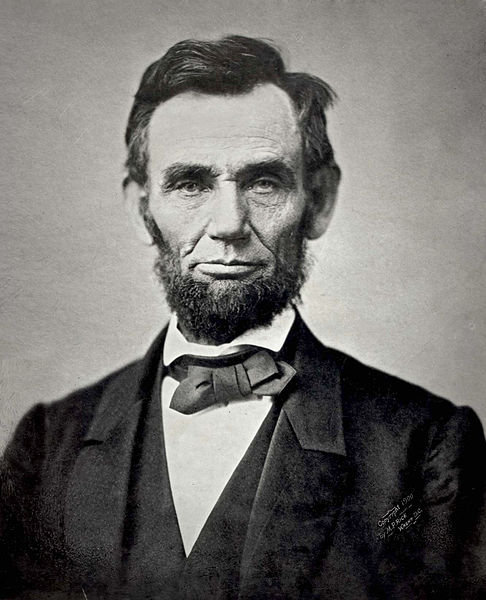
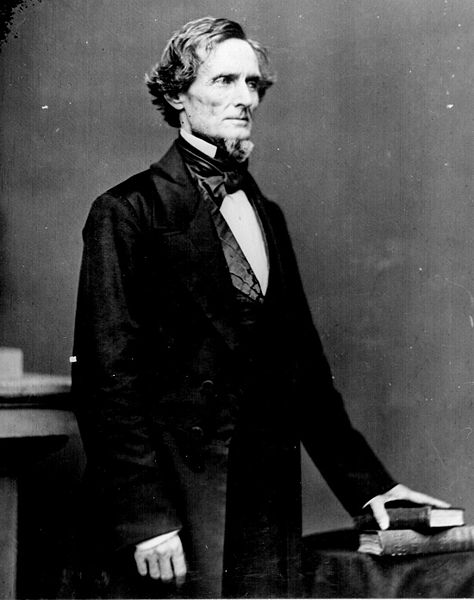
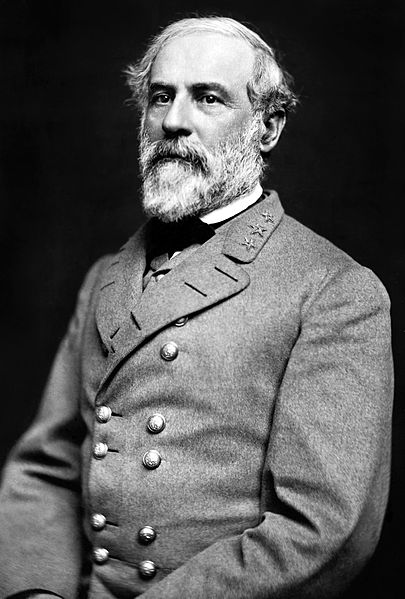
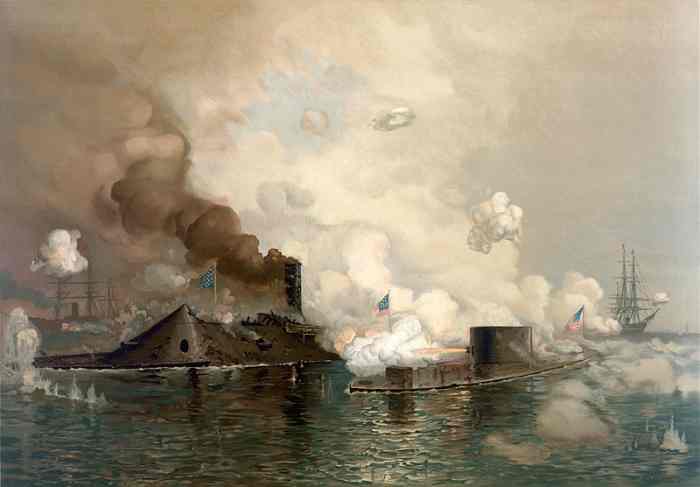
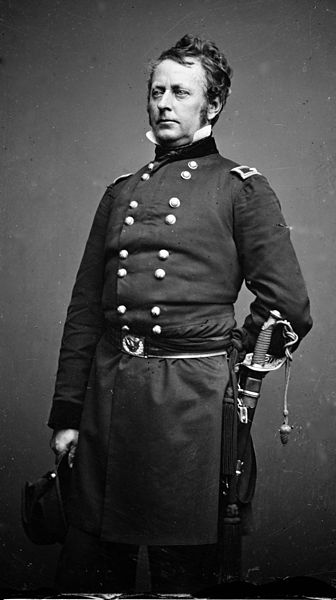
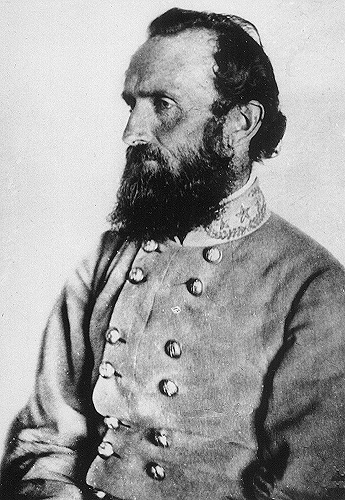
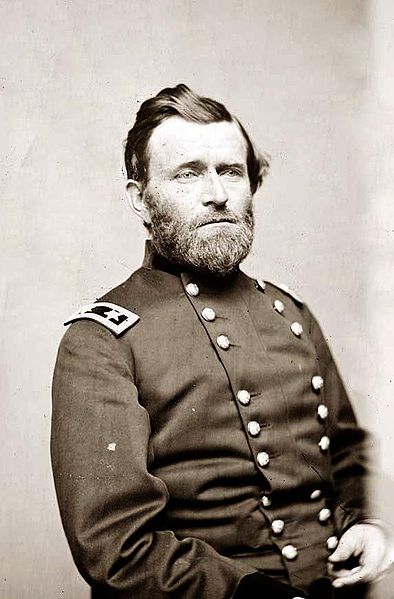
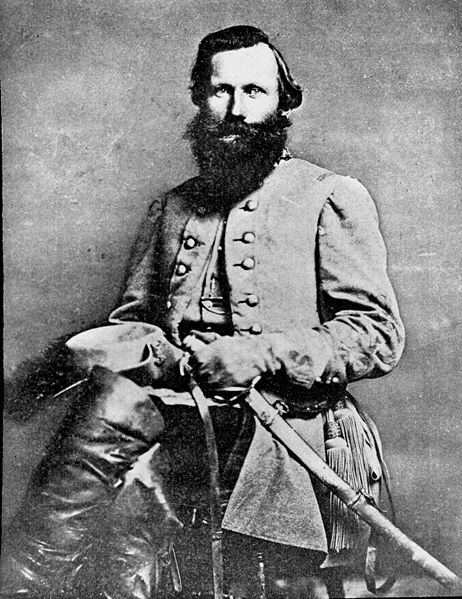
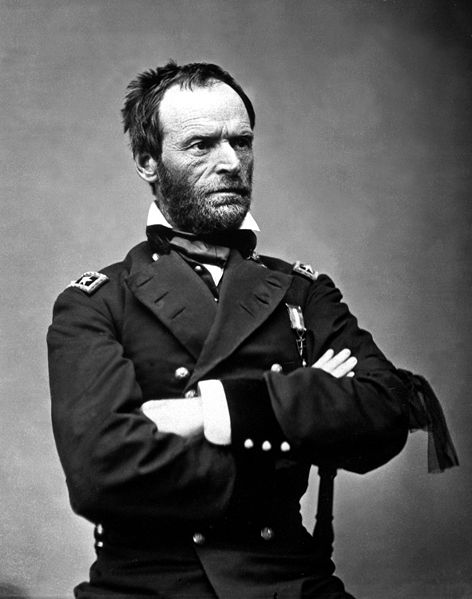
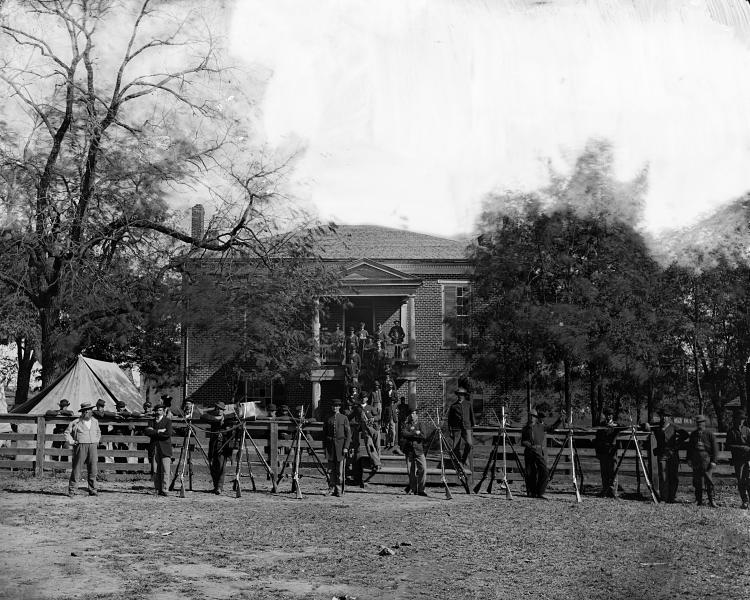
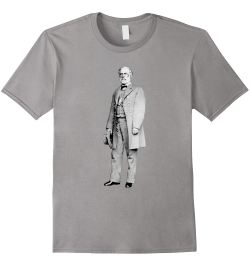




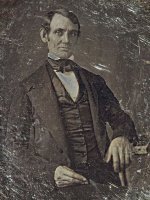
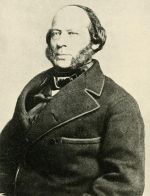
New! Comments
Have your say about what you just read! Leave me a comment in the box below.